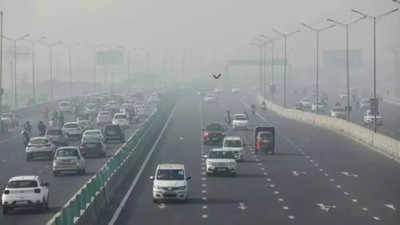
The Delhi government has taken a firm step to tackle the city’s deteriorating air quality by banning the use of BS-III petrol and BS-IV diesel four-wheelers within the capital. The restrictions, implemented under Stage III of the Graded Response Action Plan (GRAP-III), came into effect on Friday. Violators of this directive will face strict penalties, including a hefty fine of Rs 20,000 under Section 194(1) of the Motor Vehicles Act, 1988.
Delhi’ selective petrol/diesel vehicle ban: Is yours affected?
The ban affects various categories of vehicles. BS-III petrol and BS-IV diesel light motor vehicles are no longer allowed to operate in Delhi. Similarly, diesel-operated medium goods vehicles with BS-III standards or below, registered in Delhi, are prohibited unless they are engaged in transporting essential goods or services.
Diesel light commercial vehicles from outside Delhi are also restricted from entering the city unless they are carrying essential items. Additionally, inter-state buses from NCR states that do not meet BS-VI diesel standards, except those with an All-India Tourist Permit, are barred from entering the capital.
New Maruti Suzuki Dzire Review: Best Dzire Ever! | TOI Auto
The enforcement of GRAP-III comes after Delhi’s AQI reached the ‘severe’ category, posing serious health risks. As part of the GRAP-III measures, the frequency of mechanized road sweeping has been increased, and water sprinkling with dust suppressants is being intensified in high-traffic areas and pollution hotspots. Construction activities, including demolition, earthwork, and the transportation of construction debris, have been completely banned under this directive.
Delhi’s traffic police have recorded a significant surge in fines for violations related to Pollution Under Control (PUC) certificates, issuing over 2.7 lakh challans between January 1 and October 31 this year. This marks the highest number of such penalties in the past three years. Official data reveals that 2,78,772 challans were issued in 2024, a notable increase compared to 2,32,885 in 2023 and 1,64,638 in 2022.